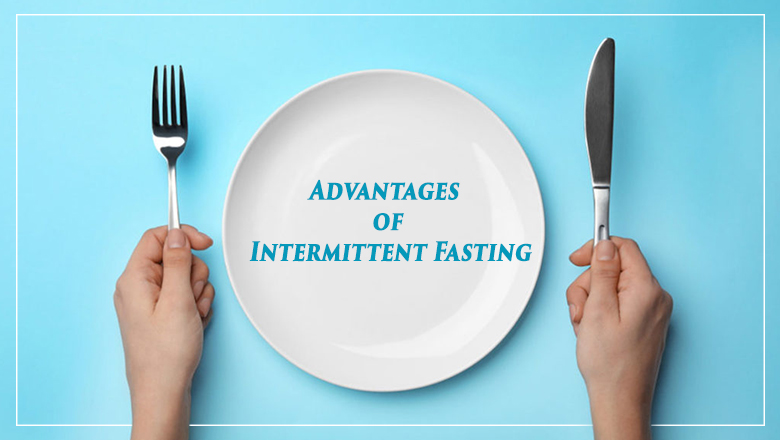Intermittent fasting is an eating pattern where you cycle between periods of eating and fasting. There are several different intermittent fasting methods, all of which split the day or week into eating periods and fasting periods.
Most people already “fast” every day, while they sleep. Intermittent fasting can be as simple as extending that fast a little longer. You can do this by skipping breakfast, eating your first meal at noon and your last meal at 8 pm.
Then you’re technically fasting for 16 hours every day, and restricting your eating to an 8-hour eating window. This is the most popular form of intermittent fasting, known as the 16/8 method.
Despite what you may think, intermittent fasting is actually fairly easy to do. Many people report feeling better and having more energy during a fast.
Hunger is usually not that big of an issue, although it can be a problem in the beginning, while your body is getting used to not eating for extended periods of time.
Some forms of intermittent fasting allow small amounts of low-calorie foods during the fasting period. Taking supplements is generally allowed while fasting, as long as there are no calories in them.
Why Fast?
Humans have actually been fasting for thousands of years.Sometimes it was done out of necessity, when there simply wasn’t any food available.
In other instances, it was done for religious reasons. Various religions, including Islam, Christianity and Buddhism, mandate some form of fasting.
Clearly, there is nothing “unnatural” about fasting, and our bodies are very well equipped to handle extended periods of not eating.
All sorts of processes in the body change when we don’t eat for a while, in order to allow our bodies to thrive during a period of famine. It has to do with hormones, genes and important cellular repair processes.
When fasted, we get significant reductions in blood sugar and insulin levels, as well as a drastic increase in human growth hormone.
Many people do intermittent fasting in order to lose weight, as it is a very simple and effective way to restrict calories and burn fat.
Others do it for the metabolic health benefits, as it can improve various different risk factors and health markers.
There is also some evidence that intermittent fasting can help you live longer. Studies in rodents show that it can extend lifespan as effectively as calorie restriction.
Some research also suggests that it can help protect against diseases, including heart disease, type 2 diabetes, cancer, Alzheimer’s disease and others.
Other people simply like the convenience of intermittent fasting.
It is an effective “life hack” that makes your life simpler, while improving your health at the same time. The fewer meals you need to plan for, the simpler your life will be.
Not having to eat 3-4+ times per day (with the preparation and cleaning involved) also saves time. A lot of it.
Advantages of Intermittent fasting –
Health benefits –
Researchers have been studying intermittent fasting for decades.
Study findings are sometimes contradictory and inconclusive. However, the research on intermittent fasting, including 16:8 fasting, indicates that it may provide the following benefits:
Weight loss and fat loss –
Eating during a set period can help people reduce the number of calories that they consume. It may also help boost metabolism.
A 2017 study suggests that intermittent fasting leads to greater weight loss and fat loss in men with obesity than regular calorie restriction.
Research from 2016 reports that men who followed a 16:8 approach for 8 weeks while resistance training showed a decrease in fat mass. The participants maintained their muscle mass throughout.
In contrast, a 2017 study found very little difference in weight loss between participants who practiced intermittent fasting — in the form of alternate-day fasting rather than 16:8 fasting — and those who reduced their overall calorie intake. The dropout rate was also high among those in the intermittent fasting group.
Disease prevention –
Supporters of intermittent fasting suggest that it can prevent several conditions and diseases, including:
– type 2 diabetes
– heart conditions
– some cancers
– neurodegenerative diseases
However, the research in this area remains limited.
A 2014 review reports that intermittent fasting shows promise as an alternative to traditional calorie restriction for type 2 diabetes risk reduction and weight loss in people who have overweight or obesity.
The researchers caution, however, that more research is necessary before they can reach reliable conclusions.
A 2018 study indicates that in addition to weight loss, an 8-hour eating window may help reduce blood pressure in adults with obesity.
Other studies report that intermittent fasting reduces fasting glucose by 3–6% in those with prediabetes, although it has no effect on healthy individuals. It may also decrease fasting insulin by 11–57% after 3 to 24 weeks of intermittent fasting.
Time-restricted fasting, such as the 16:8 method, may also protect learning and memory and slow down diseases that affect the brain.
A 2017 annual review notes that animal research has indicated that this form of fasting reduces the risk of nonalcoholic fatty liver disease and cancer.
Extended life span –
Animal studies suggest that intermittent fasting may help animals live longer. For example, one study found that short-term repeated fasting increased the life span of female mice.
The National Institute on Aging point out that, even after decades of research, scientists still cannot explain why fasting may lengthen life span. As a result, they cannot confirm the long-term safety of this practice.
Human studies in the area are limited, and the potential benefits of intermittent fasting for human longevity are not yet known.
